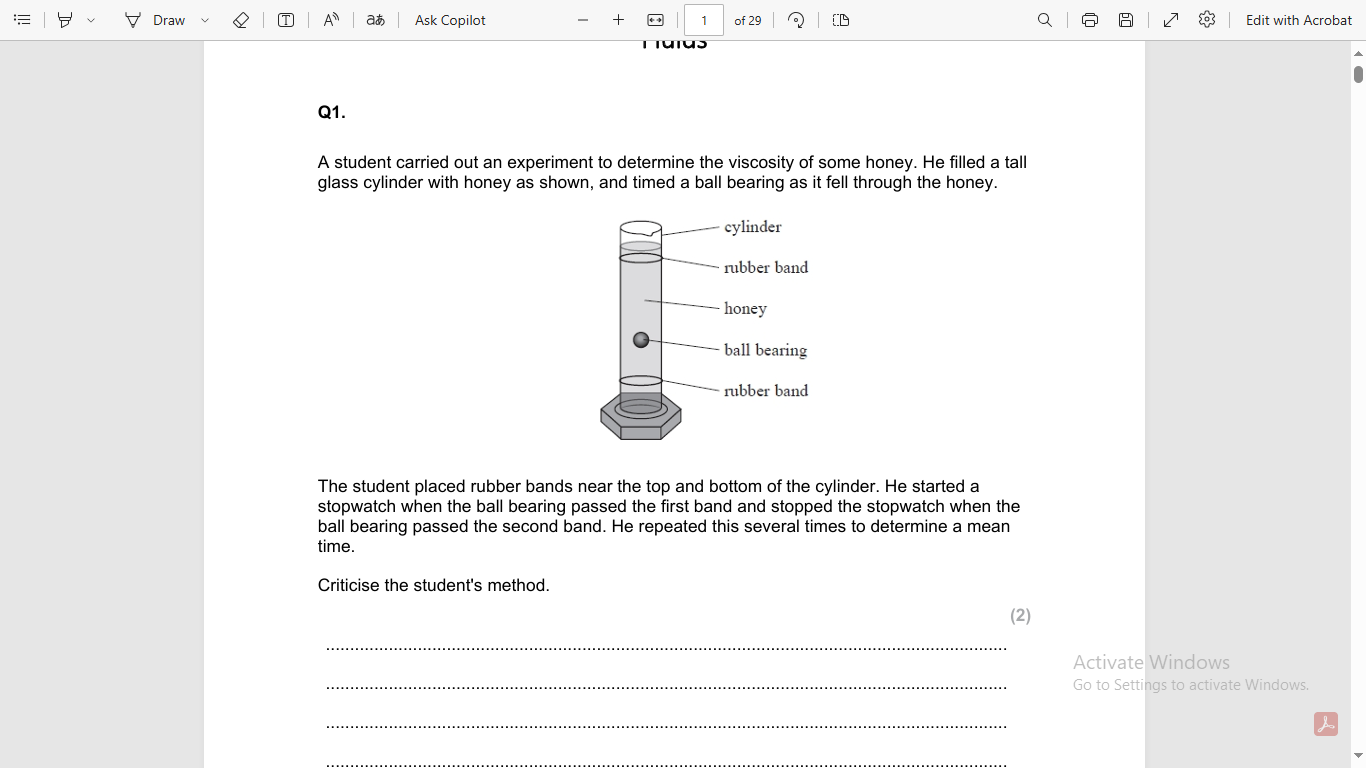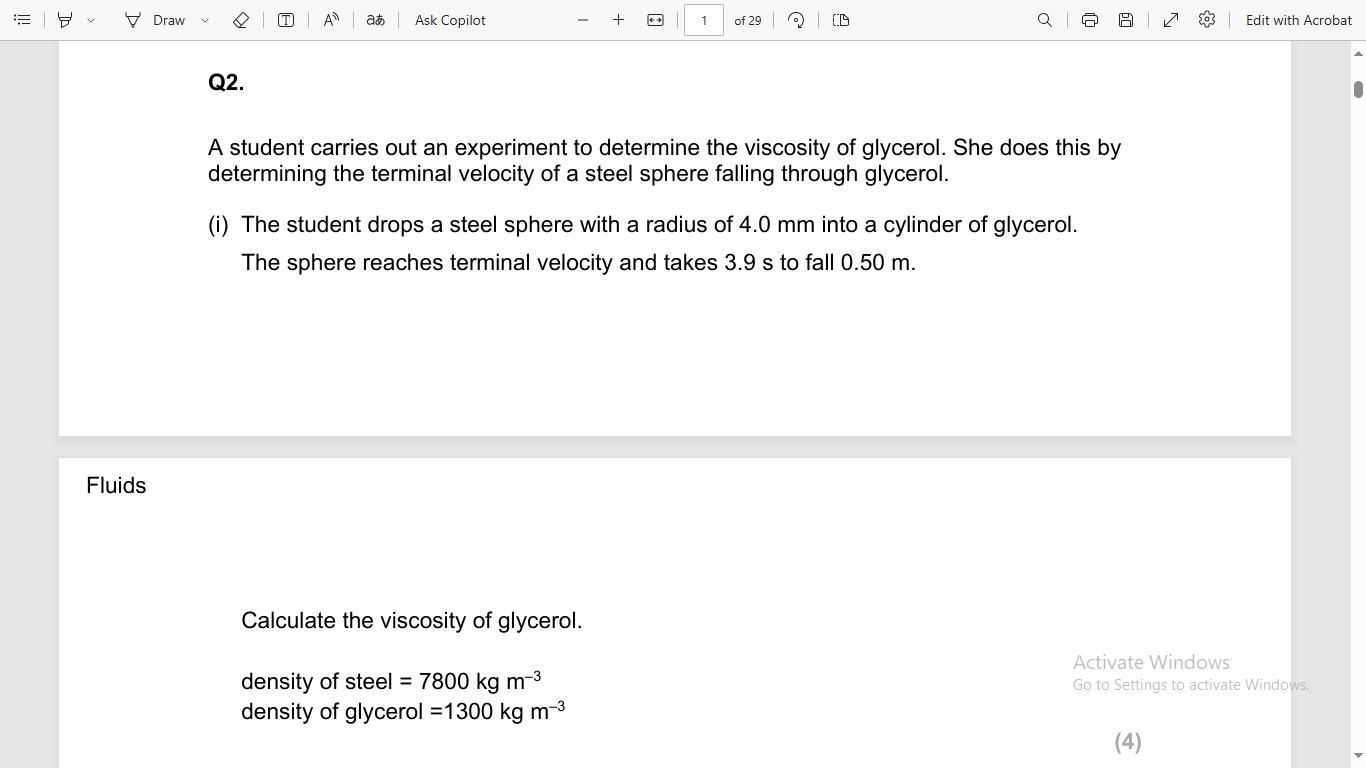Density, Pressure and Upthrust
1/8
There's no tags or description
Looks like no tags are added yet.
Name | Mastery | Learn | Test | Matching | Spaced |
|---|
No study sessions yet.
9 Terms
Density
p=mv
Archimedes principle
upthrust=weight (volume) of liquid displaced
-When an object is immersed in a fluid, the fluid exerts an upwards force (upthrust) equal to the weight of the volume of fluid displaced by the object
stokes law
F=6πηrv
upthrust
The object pushes away some water in a process called displacement
• The water creates a pressure difference between the top and bottom of the object as a result of more weight lower down in a column of fluid
• This creates a resultant force upwards called upthrust, which has a magnitude equal to the weight of displaced water
Terminal Velocity
Terminal velocity is the constant maximum velocity an object reaches when falling through a fluid
- the resultant force acting on the object is zero.
-This occurs when the drag force equals the weight of the object.
terminal velocity equation
m=pv
(sphere as stokes law) — v=4/3πr³
upward force balanced by downwards as moving at constant velocity
weight=upthrust
mg=Fv + u
u=M(f) x g
u=(Pf x v) x g
so
mg=Fv + (Pf x v) x g
m=Do x Vo
PoVog=Fv + (Pf x v) x g
Fv = 6πηrv
PoVog=6πηrv + (Pf x v) x g
and
v=4/3πr³
so
4/3πr³Pog=6πηrv + 4/3πr³Pfg

-band is too near surface of honey so ball wont fall at terminal velocity
-and there is no actual method for checking the ball is falling at terminal velocity

v=s/t
v=4/3πr³
v=vg(ps-pl)/6πrη